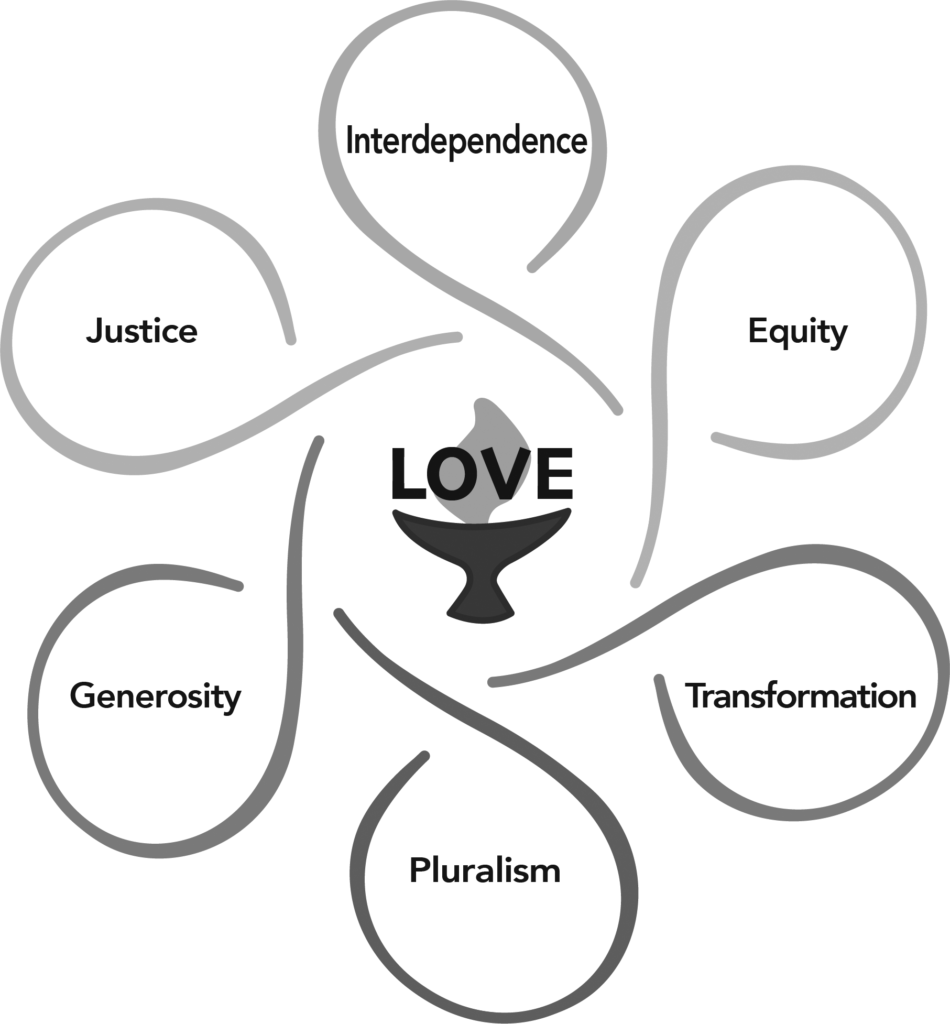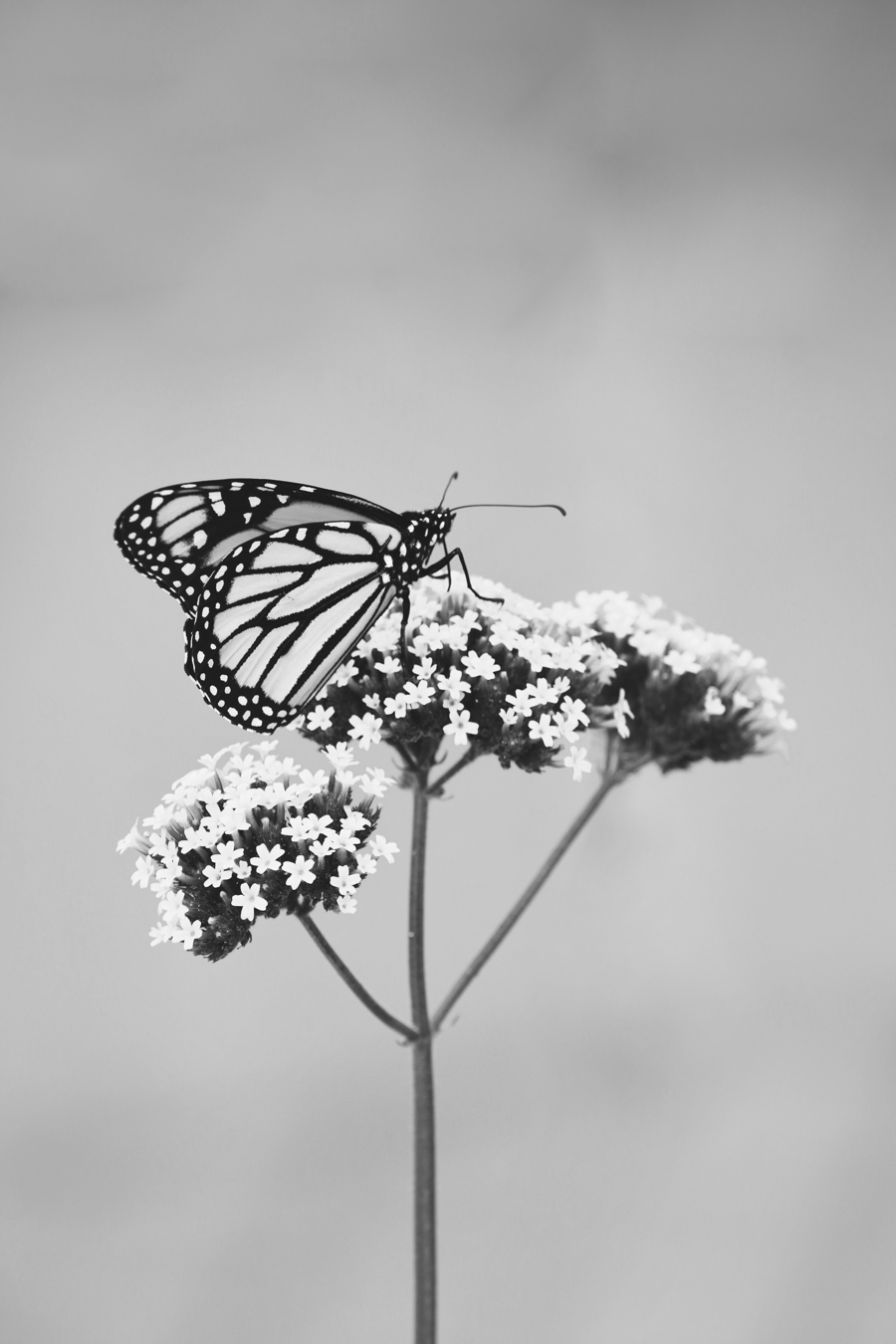When Love is the Strength You Need
January 10, 2024Recently a Young Adult Unitarian Universalist I know asked me “I know Love is at the center of our faith but how the hell am I supposed to love my oppressor?!” This is such a good question. As we embark on a new year with the knowledge a genocide is happening on one hand and constant consumer messaging on the other, how do we center Love?
To be clear, there are as many different kinds of love as there are grains of sand on a beach. Family love, friend love, partner love, pet love, etc. But when we talk about Love being at the center of our faith, the most relevant love is called Agape Love. Agape Love is known for its qualities of empathy and sacrifice. It wants the best for everyone and is intended for everyone. In the Christian faith, from which both Unitarianism and Universalism was born, it is the love God extends to us and the reciprocal love we extend to God. That love includes all things and all people. It is a covenant of unending care.
What Agape Love is not is absolution. It does not mean that we do not hold each other accountable for wrongs. It does not mean we do not name a genocide as a genocide. It does not even mean we have to like one another. We can go so far as to hate someone and still find Agape Love for them. This is because even in our hatred we still must see the humanity in the other person. Even if they have acted in inhumane ways, Agape Love, our UU Love, calls us to uphold their worth and dignity as we hold them accountable for the terrors they have committed. See the difference there, we can hold people accountable and uphold their humanity. We can Love them.
So after I got through that mini sermon, of course this UU had more to say! Here’s a replay of the rest of our conversation:
young adult: So I can tell them I love them even if I hate them…that seems hypocritical.
me: Why are you even talking to them if you hate them?!! If they’ve done something so terrible to you, why are you allowing them into your life?
young adult: Well you just said I have to affirm their humanity, don’t I have to engage with them to do that?
me: Goddess no! Agape Love says that you affirm their humanity, it doesn’t say that you are solely responsible for that.
young adult: So I can hate them and love them, just from a distance?
me: Yes, set a boundary. Make sure that their access to you is exactly as much or as little or as none as you want. There is no need to take care of your oppressor or abuser. Agape love means that when they are held accountable for their actions, it is done by someone else and it done while keeping their humanity intact.
young adult: Well what about revenge, what if I want them to suffer?
me: Ah, that’s really getting to the crux of it all isn’t it? It’s not about not wanting to love them or not. It’s that we want them to feel what we felt, suffer the way we’ve suffered. And we know that if we’re called to Love them, we can’t allow them to suffer. Even if we have. Even if we have at their hands. That’s really what this conversation is about isn’t it?
young adult: Well, yeah.
me: Will their suffering heal you? Will it make the world a better place? Will it in any way change what happened in the past?
young adult: No but…is this like the time you told me that hate is like drinking poison hoping that the other person will die?
me: Do you think it’s like that?
young adult: Hmmm, maybe. I’m gonna have to think about it.
me: Absolutely, that’s part of our faith too! And if you can, please let me know what you come up with because that’s how I learn and grow as a Unitarian Universalist too.
So beloveds, there it is. Let me know what you think so we can learn and grow together.
Love
January 10, 2024What does it mean to center the value of love?
Hank
CLF member, incarcerated in LA
Through my eyes, I see all humans with equal vision, regardless of diverse qualities, color, gender, and belief — this is what love looks like to me. Through my senses, I perceive all as one and the same, directed by cosmic order, consciousness, self, God or Guru, which are all synonymous — this is what love feels like to me.
Through my ears I hear and hold no judgment, condemnation, ridicule, or punishments for whatever is said — this is God, through me, in me at all times. Love is God, and God is love: not separate from me, and never forsaking me, for me are one and therefore I am.
Donald
CLF member, incarcerated in CO
Love is a simple yet complex emotion for us to truly describe. However, we seem to know it when we feel it. Problems arise when we grasp at, try to control or desire love. Problems also happen when we reject or do not reciprocate love.
Love is at its best when we just allow it to be, and in turn, when we just “be” in it. Love exists outside of us, sometimes with, sometimes without us. We are not necessary for love, but love is a necessity for us.
What is Love?
Ryan
CLF Member, incarcerated in FL
L-O-V-E. Probably one of the most misunderstood words in the English language. Mostly due to the fact we only have one word for it. The Greeks however have multiple words to describe different types love. Here are four of them:
Eros, the easiest, is physical love. This is where we get words like erotic. It’s the love of how things look/feel/smell/taste or any other physical property. This might be an initial feeling towards someone we’re attracted to.
Philia is brotherly love. Think of philanthropy, coming together to raise money for a cause. This describes the love towards friends, co-workers and even humanity as a whole.
Storge is familial love. Not a common root word in the English language, but this is the love one typically feels towards parents, children, siblings or cousins.
The most powerful form of love is agape, or unconditional love that continues despite and perhaps even due to our flaws.
This is sometimes the hardest to achieve because as humans we put conditions on so much, usually unconsciously. This is what we as UUs strive for, especially in our acceptance of the LGBTQ+ and incarcerated members. This is the love to strive for.
What about your love?
This Trans Heart
January 10, 2024Elaine
CLF member, incarcerated in AR
Desperate and alone, this trans heart has been,
forever seeking its needs in places bereft of such things.
Trying to make due with what’s at hand,
knowing its needs would never be met.
Dark and tainted this trans heart has been,
always ignored and forgotten in a world so cold.
Always being refused and abused,
rarely has it known the warmth and light of real love.
Hated and jaded this trans heart has been,
just for refusing to adhere to the world’s ignorance and lies.
Never rewarded for standing true to itself,
but always cast aside, unwanted by others.
Begging and pleading, this trans heart implores you,
those who have the capacity for love and caring.
Don’t let others rule who and how you should be,
let you heart judge; it knows the deepest truths.
Rain
January 10, 2024Danny
CLF member, incarcerated in CA
Drops of water fall
Onto sidewalks and raincoats
Gloomy clouds stretch on
Shifting winds and sunshine say,
“This will not be forever.”
Love at the Center: Exploring the New UU Values
January 10, 2024
From the Article II Study Commission Report: a visualization of the new proposed language for Article II, defining six Unitarian Universalist Values, with the value of Love at the center. Design by Tanya Webster (chalicedays.org)
If you’ve been tracking the next 6 months of Quest themes, you may have noticed something: we’re using these themes to explore the Values of Unitarian Universalism, as articulated in the proposed new Article II of the Unitarian Universalist Association (UUA) Bylaws.
In the February 2022 issue of Quest, in an article titled “Embracing the Living Tradition,” Rev. Michael Tino introduced these new values and the process through which they may be adopted by our Association. During the 2023 UUA General Assembly, delegates voted to move forward with the proposed language; there will be a vote during the 2024 General Assembly on whether or not to adopt these as the official articulation of our shared faith.
We’re looking forward to exploring how we relate to and understand each of these values over the next six months. As Rev. Michael wrote last February: “One of the defining characteristics of our Unitarian Universalist faith is that ours is a ‘living tradition.’ We do not etch our faith in stone precisely because we hold sacred that it must change. It must adapt to new challenges, it must meet new understandings, and it must evolve based on new experiences and connections.”
As beloved as the Principles of Unitarian Universalism have become in the almost 40 years since they were adopted, working with these new values is an important way to lean into the promise of our living tradition.
For those of you who will be submitting reflections for upcoming issues of Quest, I invite you to consider these values through the particular lens of how they may shape our shared faith. If the new Article II is adopted as our official faith language, that is the next phase of work ahead of us: to continue to co-create this faith with these values in mind, shaping and expanding their meaning by how we live them together. I’m so looking forward to being in that work together.
Quest May 2022
May 1, 2022May 2022
Where there is love there is life. —Mahatma Gandhi
Articles
Interminable Affinity
May 1, 2022(an intermission of love’s omissions)
Chase Cole
CLF member, incarcerated in MA
this memory unfolds
spilling over my shoulder
with Hyacinth coolness
shades of hair
spiral downward
rose and sweet a meadow’s breath
—lingering—
tickles my tongue
tingling red wine kisses
little sips of you
pale fingers caress shadows
cinders spear lambent gazes
never wandering eyes
tease my vibe
you are the bee
who robs my hive
unfolding myself beside you
will this last?
you ask
shivering autumnal sun
folded legs tucked under mine
petals of fallen white
holding me
shaping your outline
a nimbus of startling height
passes above us
our love
falls before us
we are a tangle of consciousness
steep and wild
merging rivers crashing together
hidden in veils of light
small wild fruit grows upon your
banks
stop and speak
to me
your silk-blue eyes
purple crescent skies
plum blossoms inhale you
I steal your smiles
cup them inside my heart
trap them inside your warmth
hold me lovely tell me I’m yours
you will come dazzling beside me
risen from jelly shaking your soul
I calm your tremors
kissing you lightly on night’s wind
this world hints of you
your rise and fall
inhaling a life we built together
exhaling empires we destroyed
forever promises eternity
love demands it
—we rise mountains
smooth summits—
sail thermals
energy
About
Quest for Meaning is a program of the Church of the Larger Fellowship (CLF).
As a Unitarian Universalist congregation with no geographical boundary, the CLF creates global spiritual community, rooted in profound love, which cultivates wonder, imagination, and the courage to act.
Contact
Church of the Larger Fellowship Unitarian Universalist (CLFUU)
24 Farnsworth Street
Boston MA 02210


